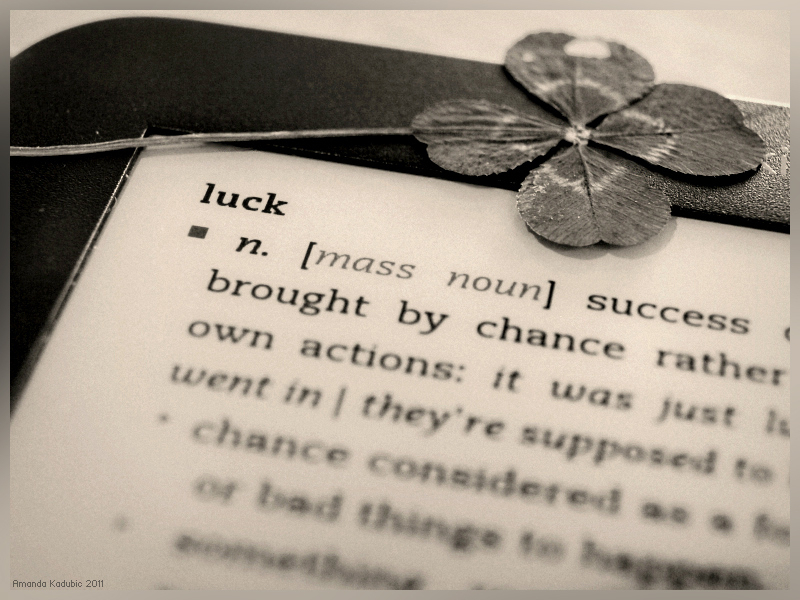- Supply – how many opportunities we encounter
- Response – whether we notice those opportunities and how we respond to them
- Growth – whether and how we internalise the result of our encounters with serendipity
Cultivating (your) serendipity (surface)
I used to have a quotation on the wall as a History teacher that said “opportunity is missed by most people because it’s dressed in overalls and looks like work”. It’s been attributed to several people, but it’s the point that’s important: opportunities arrive in life, but you have to be looking for them.
Previously, I’ve called this (on my now defunct Discours.es blog) increasing your serendipity surface. In this post, Rob Miller breaks it down into three parts, which is interesting.
But if serendipity is the result of chance, does that mean it’s out of our control? Are we just at the whims of fate? Can we organise our lives to be more conducive to these serendipitous benefits?Source: Cultivating serendipity | Roblog, the blog of Rob MillerThree factors govern the supply of serendipity in our lives and the extent to which we notice and benefit from that serendipity:
Our supply of interesting opportunities is certainly within our control. Most straightforwardly, we could deliberately put ourselves into situations of extreme novelty: travelling, for example, or seeking out new people to meet, or reading unfamiliar materials. It’s also possible to introduce randomness into what might otherwise be routine, as the writer Robin Sloan has described in his own writing process. However you do it, putting yourself in front of a steady stream of new things – increasing your supply of novelty – will increase the chances of encountering unexpected benefits.
But we’re also surrounded at all times by unnoticed novelty, which links to the second factor: the extent to which we notice and respond positively to novel situations. There are countless ways to respond poorly to novelty. We can ignore it; we can notice it but greet it with indifference; we can fear it; we can attack it, as we might if it runs counter to our existing beliefs. All of these responses ensure the snuffing out of serendipity. The only response that allows for serendipity is improvisation: embracing novelty and making it a part of what you do.
Wealth is a product of luck
This seems obvious to me: that luck plays a great part in success. Well, serendipity, perhaps which can always be given a helping hand by elite networks and pushy parents…
The conventional answer is that we live in a meritocracy in which people are rewarded for their talent, intelligence, effort, and so on. Over time, many people think, this translates into the wealth distribution that we observe, although a healthy dose of luck can play a role.Source: If you’re so smart, why aren’t you rich? Turns out it’s just chance. | MIT Technology ReviewBut there is a problem with this idea: while wealth distribution follows a power law, the distribution of human skills generally follows a normal distribution that is symmetric about an average value. For example, intelligence, as measured by IQ tests, follows this pattern. Average IQ is 100, but nobody has an IQ of 1,000 or 10,000.
The same is true of effort, as measured by hours worked. Some people work more hours than average and some work less, but nobody works a billion times more hours than anybody else.
And yet when it comes to the rewards for this work, some people do have billions of times more wealth than other people. What’s more, numerous studies have shown that the wealthiest people are generally not the most talented by other measures.
What factors, then, determine how individuals become wealthy? Could it be that chance plays a bigger role than anybody expected? And how can these factors, whatever they are, be exploited to make the world a better and fairer place?
Image: CC BY-ND fearthekumquat
The role of Lady Luck
This post on Of Dollars and Data is a bit rambling, at least from my perspective, but I did like this paragraph:
I think this chimes well with Stoic philosophy: focus on the things within you control. There are going to be times in all of our lives when bad things happen. Conversely, there are going to be times when good things happen. We can't control anything apart from our reactions to these things.Think about the story you tell yourself about yourself. In all the lives you could be living, in all of the worlds you could simulate, how much did luck play a role in this one? Have you gotten more than your fair share? Have you had to deal with more struggles than most? I ask you this question because accepting luck as a primary determinant in your life is one of the most freeing ways to view the world. Why? Because when you realize the magnitude of happenstance and serendipity in your life, you can stop judging yourself on your outcomes and start focusing on your efforts. It’s the only thing you can control.
Source: Of Dollars and Data
The role of Lady Luck
This post on Of Dollars and Data is a bit rambling, at least from my perspective, but I did like this paragraph:
I think this chimes well with Stoic philosophy: focus on the things within you control. There are going to be times in all of our lives when bad things happen. Conversely, there are going to be times when good things happen. We can't control anything apart from our reactions to these things.Think about the story you tell yourself about yourself. In all the lives you could be living, in all of the worlds you could simulate, how much did luck play a role in this one? Have you gotten more than your fair share? Have you had to deal with more struggles than most? I ask you this question because accepting luck as a primary determinant in your life is one of the most freeing ways to view the world. Why? Because when you realize the magnitude of happenstance and serendipity in your life, you can stop judging yourself on your outcomes and start focusing on your efforts. It’s the only thing you can control.
Source: Of Dollars and Data

